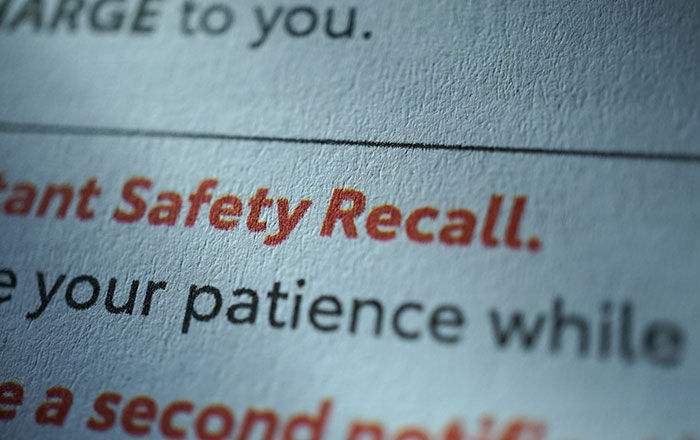
When it comes to workplace injuries, employees deserve to be compensated for their physical, emotional, and financial hardships. In South Carolina, like in many states, the duration of workers’ compensation settlements can vary widely. Understanding the factors that influence the timeline of these settlements is crucial for both employers and employees seeking resolution. This article delves into the intricacies of workers’ compensation settlements in South Carolina and explores the typical timeframe for their resolution.
To better understand the time it can take to reach a settlement in South Carolina, it’s imperative for you to understand all the steps of a standard workers’ compensation claim.
Workers’ Compensation Timeline
- Report the Injury: As soon as you’re injured on the job, it’s essential to report the incident to your employer. This should be done promptly, ideally within 90 days of the injury, but it’s best to report it as soon as possible. Failure to report the injury in a timely manner could affect your eligibility for benefits.
- Seek Medical Attention: After reporting the injury, you should seek medical attention. Your employer might have specific medical providers you need to visit for the initial treatment. It’s crucial to follow the instructions of the medical professionals and keep thorough records of all medical appointments, treatments, and expenses related to the injury.
However, if you find yourself in an emergency situation, call 911 or head to the nearest hospital – in this case, you do not have to see an “approved” physician.
- Notify Your Employer in Writing: While reporting the injury verbally is important, it’s also a good idea to provide written notification to your employer. This can help create an official record of the incident and your intent to file a workers’ compensation claim.
- File a Formal Claim: To formally file a workers’ compensation claim in South Carolina, you’ll need to complete a Form 50 or Form 52, which is the Employee’s Notice of Claim and/or Request for Hearing. This form should be submitted to the South Carolina Workers’ Compensation Commission. Your employer and their insurance carrier will also receive a copy of this form.
- Investigate the Claim: Once your claim is filed, your employer’s insurance company will investigate the incident and review the medical records and any supporting documentation. They will determine the extent of your injury, the related medical expenses, and the amount of compensation you’re eligible for.
- Receiving Benefits: If your claim is approved, you may start receiving benefits. These benefits can include medical treatment coverage, compensation for lost wages (usually about two-thirds of your average weekly wage), and any necessary vocational rehabilitation services.
- Dispute Resolution: If there are disagreements about the claim, such as the extent of the injury, the benefits amount, or the need for ongoing medical treatment, the case might proceed to dispute resolution. This could involve mediation or a formal hearing before a workers’ compensation commissioner.
- Settlement Negotiations: In some cases, the parties might choose to negotiate a settlement instead of proceeding with a formal hearing. This settlement would outline the terms of compensation, including medical treatment coverage and any lump-sum payments.
- Reaching a Resolution: Whether through negotiation, mediation, or a formal hearing, the goal is to reach a resolution that provides fair compensation for the injured worker’s medical expenses, lost wages, and any ongoing disability.
- Appeals (if necessary): If you or your employer disagrees with the decision reached during the dispute resolution process, you have the right to appeal the decision. This could involve appealing to higher levels within the Workers’ Compensation Commission or even pursuing legal action in the court system.
Factors Affecting Settlements
Several factors can impact the timeline of a workers’ compensation settlement in South Carolina:
- Nature and Severity of the Injury: The complexity of the injury and its impact on the employee’s ability to work can influence the settlement process. More severe injuries that require extensive medical treatment and have long-lasting effects may lead to a longer settlement timeline.
- Medical Treatment and Recovery: The time it takes for an employee to recover and reach maximum medical improvement plays a significant role in settlement negotiations. Settlements are often postponed until the employee’s medical condition stabilizes, as this ensures a more accurate assessment of the long-term effects of the injury.
- Dispute Resolution: If there are disputes between the injured employee and the employer/insurance company regarding the extent of the injury or the appropriate compensation, the settlement process might be prolonged. Mediation and hearings might be necessary to resolve these disputes, adding to the overall timeline.
- Negotiation and Documentation: The process of negotiation between the injured employee, their legal representation, and the employer’s insurance company can take time. Gathering medical records, employment history, and other relevant documentation to support the claim is a meticulous process that can extend the settlement duration.
- Legal Proceedings: In some cases, if the parties cannot reach a settlement through negotiation or mediation, the case might proceed to a formal hearing before a workers’ compensation commissioner. This can significantly extend the time it takes to reach a resolution.
Conclusion
Workers’ compensation settlements in South Carolina are a vital resource for employees who suffer workplace injuries. While the duration of these settlements can vary based on several factors, the ultimate goal is to provide fair compensation to the injured party.
Employers, employees, and legal representatives must work together to ensure that settlements are reached in a timely manner while prioritizing the well-being of the injured worker. By understanding the factors that influence settlement duration, stakeholders can navigate the process more effectively and help injured employees receive the support they need.
Contact The Workers’ Compensation Attorneys At McWhirter, Bellinger & Associates
Those who have been injured on the job in South Carolina are not required to hire an attorney to represent them. However, doing so can be highly beneficial. When you hire an experienced personal injury lawyer, you are hiring someone who can serve as your guide and advocate. A qualified South Carolina workers’ compensation attorney will understand the intricacies of your individual situation and build a strong case for you, fighting hard for you to receive every penny you are rightfully owed.
South Carolina workers’ compensation lawyers can also cut through the legal red tape involved with your case, making sure that every piece of paperwork is filed correctly and on time. This not only alleviates stress, but also allows you to focus 100% on what matters most – your recovery.
The South Carolina personal injury lawyers at McWhirter, Bellinger & Associates have been representing injured workers in the Palmetto State for more than four decades. Our firm has an outstanding track record of helping clients get fair compensation for their injuries. We treat every single client like family, and we remain in constant communication with our clients every step of the way.
McWhirter, Bellinger & Associates has seven offices across the Midlands of South Carolina, in Aiken, Camden, Columbia, Lexington, Newberry, Orangeburg, and Sumter.
We offer free case evaluations to those who have been injured at a South Carolina workplace, so give us a call today at 888-353-5513. It won’t cost you anything to see if we can help.®















